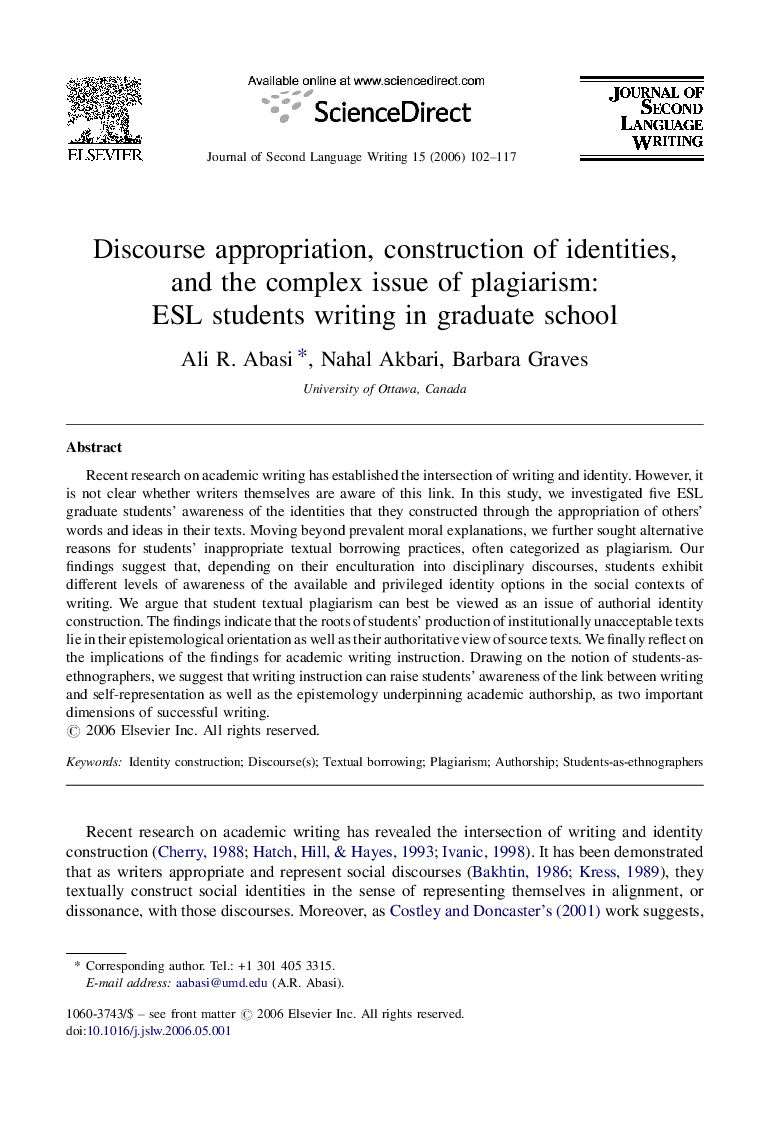| Article ID | Journal | Published Year | Pages | File Type |
|---|---|---|---|---|
| 364273 | Journal of Second Language Writing | 2006 | 16 Pages |
Recent research on academic writing has established the intersection of writing and identity. However, it is not clear whether writers themselves are aware of this link. In this study, we investigated five ESL graduate students’ awareness of the identities that they constructed through the appropriation of others’ words and ideas in their texts. Moving beyond prevalent moral explanations, we further sought alternative reasons for students’ inappropriate textual borrowing practices, often categorized as plagiarism. Our findings suggest that, depending on their enculturation into disciplinary discourses, students exhibit different levels of awareness of the available and privileged identity options in the social contexts of writing. We argue that student textual plagiarism can best be viewed as an issue of authorial identity construction. The findings indicate that the roots of students’ production of institutionally unacceptable texts lie in their epistemological orientation as well as their authoritative view of source texts. We finally reflect on the implications of the findings for academic writing instruction. Drawing on the notion of students-as-ethnographers, we suggest that writing instruction can raise students’ awareness of the link between writing and self-representation as well as the epistemology underpinning academic authorship, as two important dimensions of successful writing.
